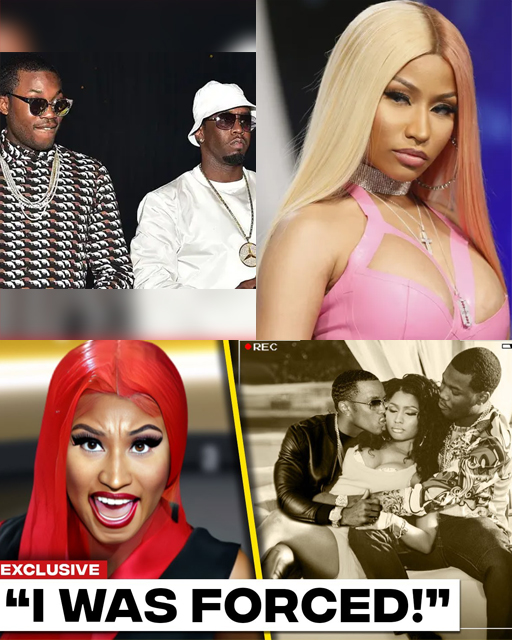Is the viral audio of Diddy and Meek Mill real or just another internet hoax? A bold claim emerged recently, suggesting that the audio originates from a popular gay porn couple. This revelation has left many questioning the authenticity of the recording and its implications within the hip-hop community.
The audio in question first surfaced earlier this year when Lil Rod dragged Meek Mill into his sexual assault lawsuit against Diddy. The recording, purportedly capturing intimate moments between the two artists, quickly became a topic of heated debate on social media platforms like TikTok and X (formerly Twitter). Despite the widespread circulation of the clip, both Diddy and Meek Mill have refrained from addressing its legitimacy directly. However, comments from various corners of the entertainment industry continue to fuel speculation.
| Bio Data | Personal Information | Career | Professional Information |
|---|---|---|---|
| Name | Sean Combs (Diddy) | Founder of Bad Boy Records | Bad Boy Entertainment |
| Born | November 4, 1969, Harlem, New York City | Rapper, Record Producer, Entrepreneur | Net Worth: Estimated $820 million as of 2023 |
| Name | Robert Rihmeek Williams (Meek Mill) | Hip-Hop Artist | Label: Maybach Music Group / Dream Chasers |
| Born | May 6, 1987, Philadelphia, Pennsylvania | Activist, Philanthropist | Known for hits like Going Bad and Dreams & Nightmares |
Nicki Minaj found herself embroiled in controversy after being accused of leaking the alleged audio featuring Diddy and Meek Mill. Hip-hop artist Jaguar Wright made these accusations public, sparking outrage among fans and peers alike. While Minaj has not commented on the matter, her involvement adds another layer of intrigue to the already complex narrative surrounding the audio's origins.
Azealia Banks weighed in on the situation with her characteristic candor, offering an analysis of the alleged recording. On September 29, she took to X to express her thoughts, stating, Diddy is the bottom, Meek Mill is the top. Her remarks drew mixed reactions, with some praising her honesty while others criticized her for perpetuating gossip. Regardless of one's stance, it is clear that the conversation around this audio continues to captivate audiences worldwide.
TikTok has become a primary platform for discussions about the alleged Diddy and Meek Mill audio. Users have uploaded countless videos reacting to the clip, speculating about its authenticity, and sharing their opinions on the matter. Among the most popular posts are those labeled Meek Mill Diddy Audio Original Get Up, Diddy Smashing Meek Mill, and Footage of Diddy Meek. These clips often garner millions of views, underscoring the immense interest in the story.
As the debate rages on, several key questions remain unanswered. Who exactly recorded the audio? Was it indeed taken from a gay porn production, as some suggest? And perhaps most importantly, why has neither Diddy nor Meek Mill chosen to clarify the situation publicly? In an era where digital content spreads rapidly across borders, such ambiguities can lead to significant consequences for all parties involved.
For Motivational Use Only, Meek Mill's official TikTok account serves as a reminder of his resilience amidst controversy. With over 827K followers and 5.3M likes, his presence on the platform remains strong. Fans continue to support him through thick and thin, appreciating his music and activism regardless of external noise. Meanwhile, Diddy maintains his status as a powerhouse figure in the entertainment industry, leveraging his vast network and resources to stay ahead of trends.
In light of these developments, it becomes crucial to examine how rumors and misinformation impact public perception. Social media amplifies voices but also distorts truths, creating echo chambers where fact and fiction blur together. Artists like Diddy and Meek Mill must navigate this landscape carefully, balancing transparency with privacy while protecting their reputations. As the world waits for answers, the saga of the alleged audio serves as a poignant example of modern-day celebrity scrutiny.
Ultimately, the authenticity of the audio may never be confirmed. What remains undeniable, however, is its ability to spark dialogue about consent, representation, and accountability within the music industry. Whether viewed as mere entertainment or a serious issue warranting attention, the incident highlights broader societal concerns that extend beyond individual cases. By engaging critically with such stories, we contribute to fostering healthier conversations about power dynamics and mutual respect.
While the focus here has been primarily on Diddy and Meek Mill, similar situations involving other high-profile figures underscore the need for vigilance when consuming online content. Authenticity checks, credible sources, and thoughtful discourse play vital roles in separating truth from fiction. Moving forward, let us strive to approach such matters with empathy and discernment, ensuring that our collective response reflects integrity and fairness.
As the dust settles—or perhaps never does—the legacy of this episode will likely linger in popular culture. It joins countless other instances where technology intersects with human nature, producing outcomes both fascinating and troubling. For now, the world watches, listens, and wonders: Is the audio real? And if so, what does it mean for those implicated and the broader context of fame in the digital age?



